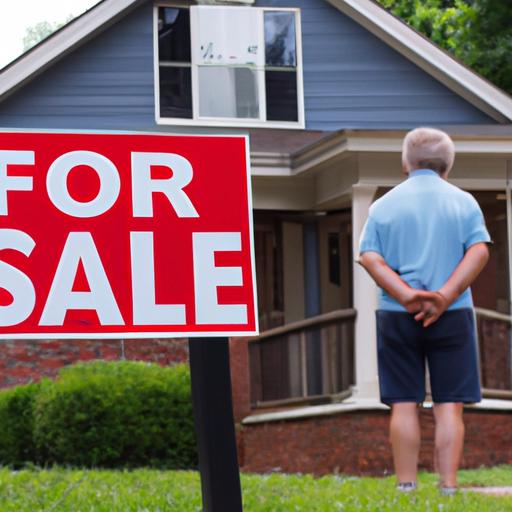Debt settlement can be a saving grace for many individuals struggling with overwhelming financial burdens. It offers a path to financial freedom by negotiating with creditors to settle debts for less than what is owed. While debt settlement can provide relief from unmanageable debt, it is crucial to comprehend the lasting impact it may have on your dream of homeownership.
Understanding the implications of debt settlement on your ability to buy a house is vital in navigating the complexities of the real estate market. By delving into the intricacies of debt settlement and its repercussions on your financial standing, you equip yourself with the knowledge needed to make informed decisions regarding homeownership. So, can you really buy a house after debt settlement? Let’s explore this question together.
Impact of Debt Settlement on Buying a House
Effect on Credit Score
Debt settlement can have a significant impact on your credit score. When you settle a debt, it is typically updated on your credit report as “settled,” indicating that you did not pay the full amount owed. This notation can lower your credit score, making it more challenging to qualify for a mortgage. Lenders often view a lower credit score as a risk factor, which can result in higher interest rates or even rejection of your mortgage application.
Challenges in Securing a Mortgage
Securing a mortgage after debt settlement can pose challenges. Lenders may be wary of extending credit to individuals with a history of debt settlement, as it signals financial instability. Additionally, the terms of the mortgage, such as the down payment amount and interest rate, may be less favorable compared to those offered to borrowers with a clean credit history. It is essential to be prepared for potential hurdles in the mortgage approval process and explore ways to mitigate them.
Timing Considerations for Applying for a Mortgage After Debt Settlement
Timing is crucial when considering buying a house after debt settlement. It is advisable to wait for some time after settling your debts to allow your credit score to recover and demonstrate responsible financial behavior. Building a positive credit history post-debt settlement can improve your chances of securing a mortgage with favorable terms. Planning and strategizing the timing of your mortgage application can make a difference in your homeownership journey.
Rebuilding Credit After Debt Settlement
Importance of Improving Credit Score
One of the key components in buying a house after debt settlement is rebuilding your credit score. Your credit score plays a significant role in determining your eligibility for a mortgage and the interest rates you may receive. By focusing on improving your credit score post-debt settlement, you enhance your chances of securing a favorable mortgage loan and achieving your homeownership goals.
Strategies for Rebuilding Credit Post-Debt Settlement
To rebuild your credit after debt settlement, consider implementing strategic approaches such as monitoring your credit report regularly, making timely payments on remaining debts, and diversifying your credit accounts. By proactively working towards improving your credit score, you demonstrate financial responsibility and reliability to potential lenders, increasing your chances of obtaining a mortgage.
Tips for Maintaining Good Credit Habits
In addition to actively rebuilding your credit score, it is essential to maintain good credit habits to sustain a healthy financial profile. This includes paying bills on time, keeping credit card balances low, and avoiding unnecessary credit inquiries. By adhering to these good credit practices, you not only improve your creditworthiness but also establish a solid foundation for future financial endeavors, including purchasing a home.
Factors to Consider Before Buying a House After Debt Settlement
Financial Readiness for Homeownership
Before embarking on the journey of purchasing a home post-debt settlement, it is imperative to assess your financial readiness. Evaluate your current financial situation, including your income stability, savings, and overall debt-to-income ratio. Ensuring that you have a stable financial foundation can significantly impact your ability to afford homeownership and navigate potential challenges that may arise.
Affordability of Mortgage Payments
One crucial factor to consider before buying a house after debt settlement is the affordability of mortgage payments. Take into account your monthly income, expenses, and any existing financial obligations to determine whether you can comfortably manage mortgage payments. Understanding your financial capabilities and setting a realistic budget for homeownership can prevent future financial strain and ensure a smooth transition into homeownership.
Potential Impact of Debt Settlement on Mortgage Terms
Debt settlement can have a lasting impact on your credit history and may affect the terms of your mortgage. Lenders may scrutinize your credit report post-debt settlement, potentially leading to higher interest rates or stricter loan terms. It is essential to be aware of how debt settlement can influence your mortgage eligibility and terms, allowing you to proactively address any challenges and make informed decisions when pursuing homeownership.
Steps to Take When Buying a House After Debt Settlement
A. Consultation with a Financial Advisor
Before embarking on the journey to homeownership post-debt settlement, it is paramount to seek guidance from a financial advisor. A financial expert can provide valuable insights into your financial situation, assess your readiness for homeownership, and offer tailored advice on steps to take to achieve your goal. By consulting with a professional, you gain a clear understanding of your financial standing and can make informed decisions about purchasing a home.
B. Getting Pre-Approved for a Mortgage
Securing pre-approval for a mortgage is a crucial step in the home buying process after debt settlement. Pre-approval indicates to sellers that you are a serious and qualified buyer, increasing your chances of a successful offer. By obtaining pre-approval, you also gain clarity on your budget and can focus your search on properties within your financial means. Work with a reputable lender to get pre-approved and streamline the mortgage application process.
C. Searching for a Home Within Budget Constraints
When buying a house after debt settlement, it is essential to stay within your budget constraints to avoid falling back into financial instability. Consider factors such as monthly mortgage payments, property taxes, insurance, and maintenance costs when determining your budget for a home. By setting realistic budget limits and sticking to them, you can ensure a smooth and sustainable transition to homeownership.
Conclusion
In conclusion, the journey to homeownership after debt settlement may present challenges, but it is not an impossible feat. By understanding the impact of debt settlement on your credit score, rebuilding your financial standing, and carefully considering your readiness for homeownership, you can pave the way towards achieving your dream of owning a house.
Remember, the key lies in diligence, financial responsibility, and seeking guidance from professionals in the field. With the right strategies in place, you can turn your past financial struggles into stepping stones towards a brighter future. So, don’t let debt settlement deter you from pursuing homeownership – take the necessary steps, stay informed, and embark on this new chapter with confidence. Your dream home may be closer than you think.


